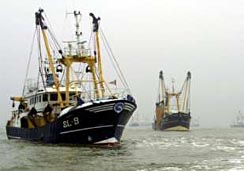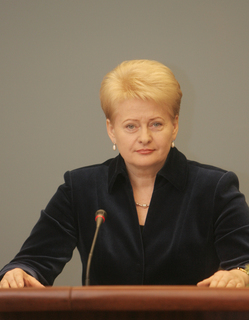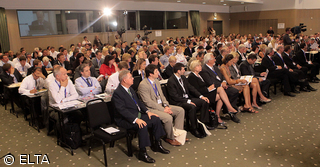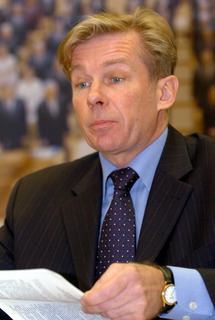The EU has decided to turn to Russia for some of its oil needs to reduce the continent's dependence on OPEC.
Published:
16 October 2000 y., Monday
A long-term agreement with Russia would benefit Europe by allowing it to diversify its energy sources, but it would also force EU officials into some difficult policy choices.
Russia has already indicated that its assistance would come at a price.
Russian deputy prime minister Viktor Khristenko told EU leaders in Brussels a few weeks ago that Russia wants its energy transit to bypass Ukraine. Russian officials widely suspect Ukraine of illegally siphoning off energy and pocketing the profit.
And Russian Deputy Foreign Minister Ivan Ivanov said earlier this week that Russia also wants the EU to drop its support for the Baku-Ceyhan pipeline, sponsored by the US and Turkey. The pipeline, if completed, would bypass Russia.
Observers call the EU proposal for energy cooperation with Russia the "Prodi plan," after European Commission president Romano Prodi. He was the first to present it to Russia.
The plan envisages a swap of Russian energy for EU assistance. It was largely worked out between Germany and the commission.
Russia has large energy reserves, but has little resources to exploit them. The export of gas and oil requires expensive transit facilities.
Under the Prodi plan, the EU would use its political influence and technical assistance to channel foreign investment into Russian energy transit. In return, Russia would guarantee the EU a significant supply of energy for the next 20 years.
Emerson says the EU is likely to promote an even-handed approach to transit routes, supporting the idea of multiple pipelines. This is borne out by the Commission's external relations spokesman Gunner Wiegand, who says the EU has no official strategic preferences. According to Wiegand, the deciding factors as to transit routes must be commercial viability, private sector interest and their multiplicity.
Yet the placing of transit routes has obvious geo-political implications.
Emerson says that while Russia and the United States are involved in what he called "great games" of strategy, the EU was not willing to view its choices in such terms.
The EU does not have a cohesive energy strategy at this stage, but has been prompted into formulating such a strategy by the recent rise in world oil prices and by widespread protests by citizens complaining about high taxes on fuel.
Šaltinis:
rferl.org
Copying, publishing, announcing any information from the News.lt portal without written permission of News.lt editorial office is prohibited.
The most popular articles
 A specific EU budget line for the new EU stabilisation mechanism should be created as soon as possible, to ensure its credibility, Council, Commission and Parliament negotiators agreed at a three-way meeting on Wednesday.
more »
A specific EU budget line for the new EU stabilisation mechanism should be created as soon as possible, to ensure its credibility, Council, Commission and Parliament negotiators agreed at a three-way meeting on Wednesday.
more »
 New EU rule will help phone-users avoid astronomical bills for web-surfing and downloads abroad.
more »
New EU rule will help phone-users avoid astronomical bills for web-surfing and downloads abroad.
more »
 The Communication approved today by the Commission builds on the principles presented on 12 May to reinforce the economic governance in the European Union.
more »
The Communication approved today by the Commission builds on the principles presented on 12 May to reinforce the economic governance in the European Union.
more »
 Eurostat report just published shows that the crisis has brought some lower taxes.
more »
Eurostat report just published shows that the crisis has brought some lower taxes.
more »
 New legislation is needed to ensure fair returns to farmers and transparent prices to consumers, by enforcing fair competition throughout the food supply chain, said Agriculture Committee MEPs on Monday.
more »
New legislation is needed to ensure fair returns to farmers and transparent prices to consumers, by enforcing fair competition throughout the food supply chain, said Agriculture Committee MEPs on Monday.
more »
 Fish imports play a crucial role in supplying the European market, yet fisheries and aquaculture are strategic sectors that do not lend themselves to a purely free-trade approach, believes the EP Fisheries Committee.
more »
Fish imports play a crucial role in supplying the European market, yet fisheries and aquaculture are strategic sectors that do not lend themselves to a purely free-trade approach, believes the EP Fisheries Committee.
more »
 I will support every proposal that strengthens cooperation among the European Union's Member States and serves Lithuania's interests," President of the Republic of Lithuania Dalia Grybauskaitė said at the meeting with EU Member States' ambassadors resident in Lithuania.
more »
I will support every proposal that strengthens cooperation among the European Union's Member States and serves Lithuania's interests," President of the Republic of Lithuania Dalia Grybauskaitė said at the meeting with EU Member States' ambassadors resident in Lithuania.
more »
 The fourth World Lithuanian Economic Forum “High tech innovation & investment: local to global” will start in London on 22 June.
more »
The fourth World Lithuanian Economic Forum “High tech innovation & investment: local to global” will start in London on 22 June.
more »
 Lithuania aims for the five Nordic countries and three Baltic States to become single community of values, which would be linked by a versatile quality of democracy, security and everyday life.
more »
Lithuania aims for the five Nordic countries and three Baltic States to become single community of values, which would be linked by a versatile quality of democracy, security and everyday life.
more »
 MEPs decided on Wednesday to create a special committee to prepare for the EU's next long-term budgetary framework.
more »
MEPs decided on Wednesday to create a special committee to prepare for the EU's next long-term budgetary framework.
more »